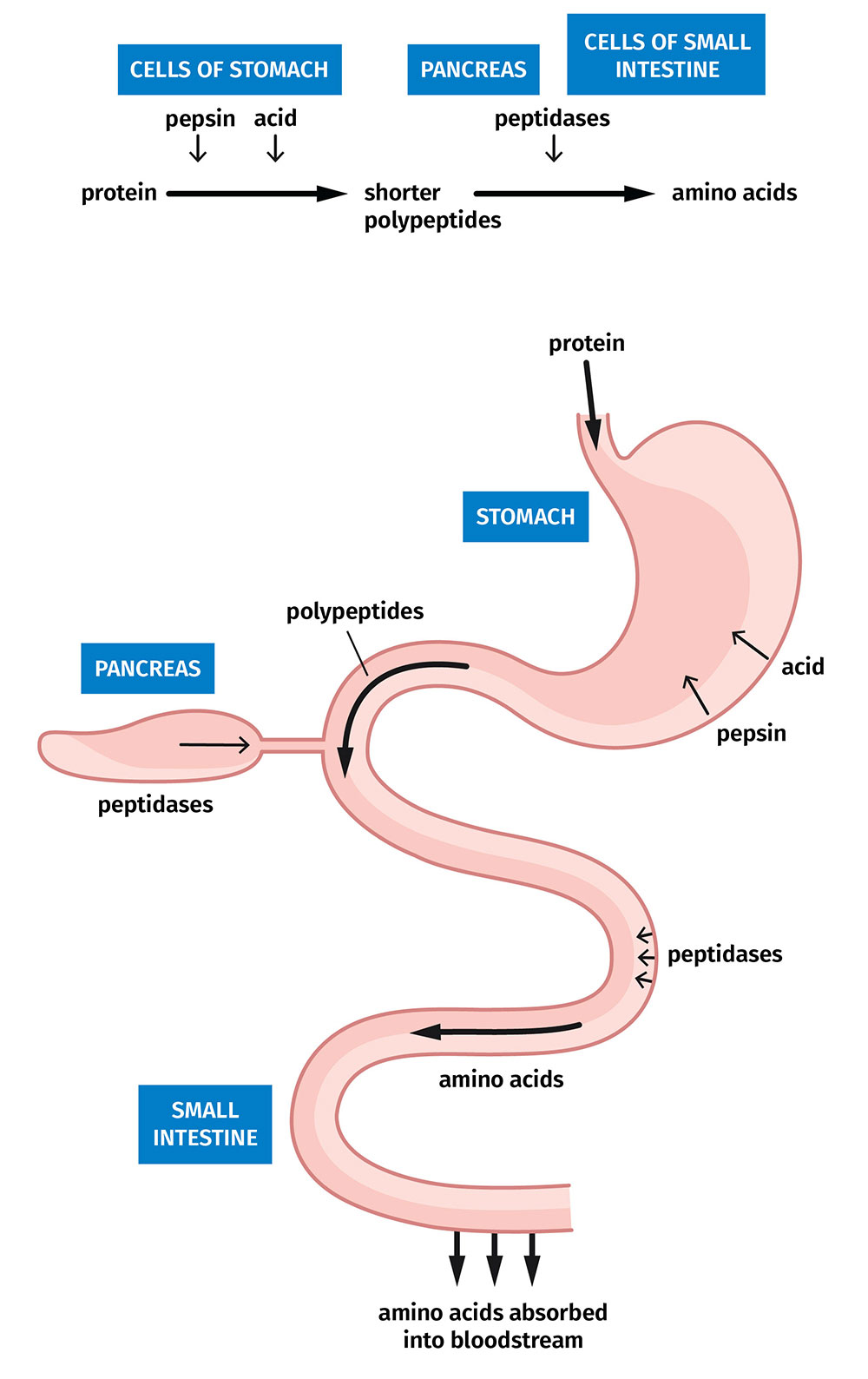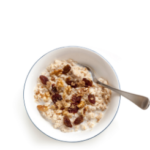What is Protein Absorption, and How is it Beneficial?

Protein absorption refers to your body’s ability to break down the animal or plant protein sources you ingest into individual building blocks (amino acids), then use those building blocks to make the proteins your body needs for everyday living[1], like maintaining and improving muscle strength. The protein you consume must be broken down by your body during digestion so that it can be effectively absorbed and used to support body functions.
Under certain circumstances, a person’s protein requirements increase, due to conditions like aging or strenuous exercise. As we age, protein may be absorbed more slowly by the body. As well, athletes have a greater requirement for available protein to rebuild and maintain muscle health. Taking positive dietary steps can help improve how our bodies absorb protein, but sometimes diet alone isn’t enough. Critical to ensuring that your body can adequately use available protein is maintaining overall digestive health.
Protein Digestion 101
To understand more about the importance of protein absorption, it’s helpful to understand how it works.[2] Simply put, digesting protein requires the interaction of stomach acids and enzymes. The stomach acid activates the enzymes, and the enzymes work to break down the protein.
- First, pepsin, a stomach enzyme, works to break down and split protein found in the food source into shorter polypeptides.
- Next, the pancreas releases more enzymes into the small intestine, where the polypeptide chains are broken into even smaller lengths and the process of removing smaller peptides and individual amino acids from the ends of the chains begins.
- Then, more peptidases are released directly from the cells lining the small intestine, breaking the protein in the food into individual amino acids to complete the digestive process.
- Finally, amino acids are transported across the wall of the small intestine into the bloodstream, where they are carried and absorbed by tissues within the body as needed to support normal, healthy function.
How Can Probiotics Help?
In addition to consuming the proper foods, maintaining gut health is critical in helping your body properly digest, absorb and use protein. In a way, it’s a paradox: having a healthy digestive system helps you maintain a healthy digestive system. But the balance of healthy bacteria in your digestive tract can be compromised by an inadequate diet, stress, or infections, which can affect nutrient absorption and digestion.[3]
Ensuring healthy protein absorption and utilization starts with meeting your dietary needs. This can be difficult, however, since experts differ on the recommended amounts.[4] As well, proteins from some types of food are harder to digest than others.[5] Adding certain probiotics to a healthy diet can help improve absorption of nutrients like protein. Although probiotics have been consumed historically for their digestive health benefits, recent research has found that BC30™ (Bacillus coagulans GBI-30, 6086), a hardy, spore-forming probiotic, may support protein absorption in the body.[6]
- A study published in the scientific journal, Nutrition & Metabolism found that BC30 significantly improves amino acid absorption in the blood as compared to a negative control.
- The study further showed that consuming BC30 with Ultranor™ MPC (milk protein concentrate), Kerry’s grass-fed dairy protein, also led to higher maximum concentrations of several amino acids in the blood, which means increased absorption of the milk protein. Ultranor contains the proteins casein, which is digested slowly, and whey, which is digested quickly, for steady amino acid release.
What Are the Benefits of Improved Protein Absorption?
Clearly, our body’s ability to use protein is critical to so many body functions, all of which can be influenced by factors like aging, stress, or the rigors of physical activity. Consuming everyday foods or beverages fortified with BC30 can help a variety of people reap the benefits of optimizing their protein intake.
In older populations Since the rate of protein absorption can decline with age, foods and beverages formulated with Bc30 may help the body to more efficiently utilize the protein consumed.
In athletes and active lifestylers Active populations can benefit from the muscle-building and recovery aspects of protein. This study’s results demonstrating more efficient protein digestion, and previous data showing that BC30 consumption improves muscle recovery after intense training[7] means that products formulated with BC30 may help athletes get the benefits they need to stay active.
In general populations With increasing awareness of the importance of healthy diets, people are becoming even more proactive about macronutrients like protein. Wellness-focused people looking to optimize protein absorption want it as a functional benefit in their everyday foods and beverages.
Sources:
[1] Oxford Dictionary of Food and Nutrition, 4th Edition, 2014
[2] OpenLearn, Protein digestion and absorption, accessed November 2020
[3] Livestrong.com, What Helps Absorb Protein?, July 2019
[4] Livestrong.com, How Much Protein Is Right For You?, September 2018
[5] Food and Nutrition Bulletin, Digestibility issues of animal versus vegetable proteins, June 2013
[6] Stecker, R.A., Moon, J.M., Russo, T.J. et al. Bacillus coagulans GBI-30, 6086 improves amino acid absorption from milk protein. Nutr Metab (Lond) 17, 93 (2020). https://doi.org/10.1186/s12986-020-00515-2
[7] Jager R, Shields KA, Lowery RP, De Souza EO, Partl JM, Hollmer C, Purpura M, Wilson JM. (2016) Probiotic Bacillus coagulans GBI-30, 6086 Reduces Exercise-Induced Muscle Damage and Increases Recovery. PeerJ, 4:e2276.


